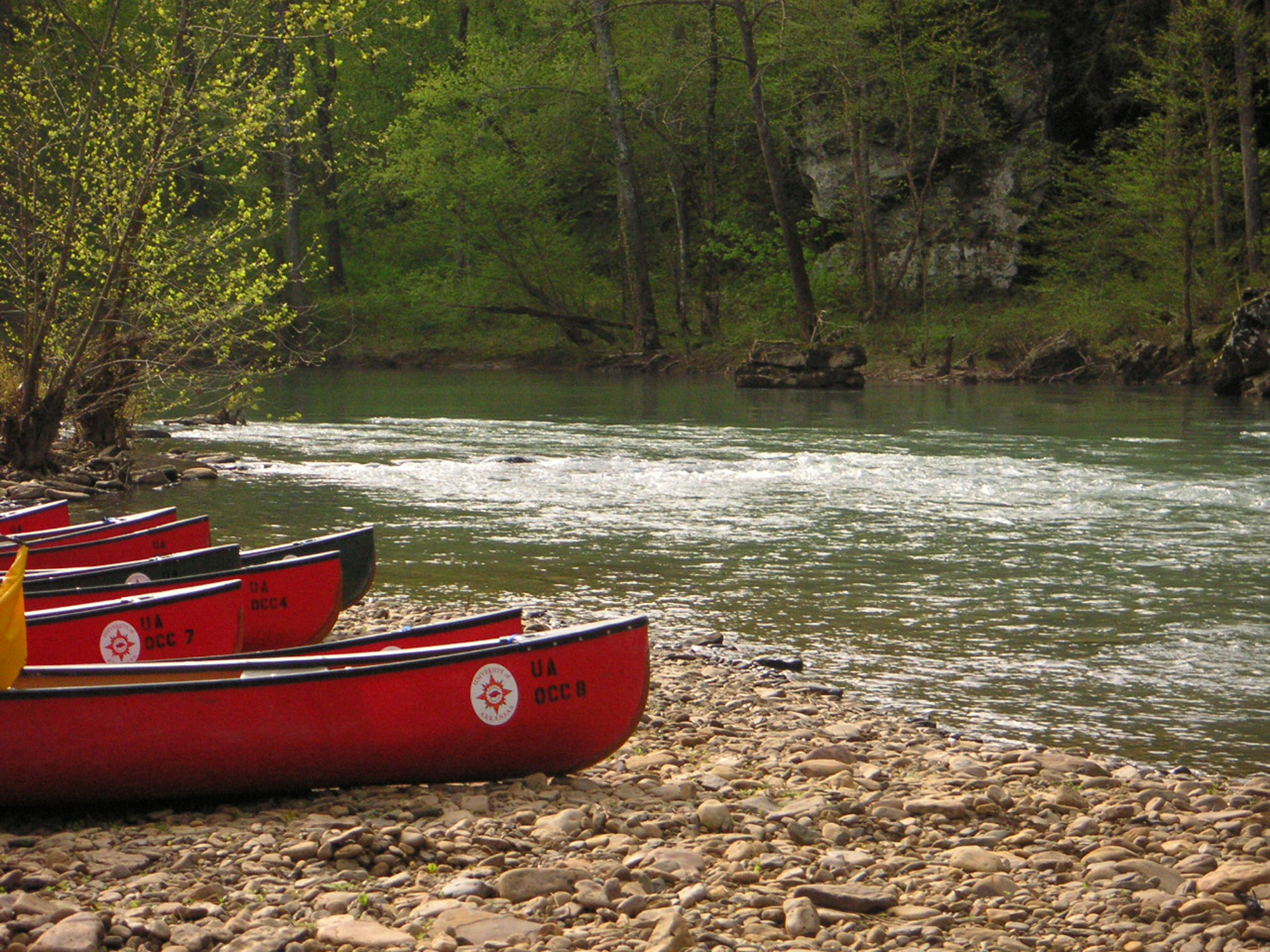FAYETTEVILLE, Ark. — A couple of University of Arkansas students majoring in recreation will extend their spring semester after classes this year, attending a five-day course to certify them in an educational curriculum that emphasizes respect for the environment.
Jennifer Hazelrigs, director of the Outdoor Connection Center on the Fayetteville campus, organized the course locally for Leave No Trace, an international educational organization dedicated to responsible enjoyment and active stewardship of the outdoors. She also serves as the state advocate for Leave No Trace.
The Leave No Trace Center for Outdoor Ethics espouses seven basic principles: plan ahead and prepare, travel and camp on durable surfaces, dispose of waste properly, leave what you find, minimize campfire impact, respect wildlife and be considerate of other visitors.
Educators with training from Leave No Trace work for state parks, Boy Scouts, U.S. Forest Service, National Park Service, wildlife management areas and outdoor education programs such as the university’s Outdoor Connection Center, Hazelrigs explained.
The only other Leave No Trace Master Educator course available in the state takes place in the Ouachita Mountains in the fall, she said. The University of Arkansas course begins May 12 with a day of classroom instruction at the Health, Physical Education and Recreation Building. For the remainder of the week, the course moves to the Buffalo National River.
“What’s neat about this course,” Hazelrigs said, “is that the majority of these people will stay in the area and teach others.”
Jonathan Vogler, a junior from Little Rock, is one of two students majoring in recreation who signed up for the master educator course for professional and personal reasons.
“On a professional level, this was interesting to me because I hope to work in the back country and wilderness,” Vogler said. “Personally, it’s important to me to keep the areas I visit pristine and to show respect for the land.”
Vogler camped and fished with his father often as a child, but it wasn’t until his high school and college years that he became an enthusiast about such outdoor activities as rock climbing and kayaking.
After taking a course from the National Outdoor Leadership School, Vogler said, he became adamant about instilling the Leave No Trace ethics wherever he could. The National Outdoor Leadership School is a program designed to develop outdoor leaders. Vogler first learned about Leave No Trace while taking a 25-day leadership school course.
“These principles are valuable and necessary with the rising usage of outdoor areas,” he said.
Vogler works at the Outdoor Connection Center at the climbing wall in the HPER, in the rental shop, as a trip leader and facilitator of clinics and activities.
The center offers seminars, clinics, activities and trips for the university community as well as the general public, both to local attractions and all over the country. The center sponsored its first international trip over spring break, taking a group sea kayaking in Baja, Mexico. It also rents out all sorts of camping, hiking and sporting equipment as well as bicycles and gear, canoes and kayaks.
“This course fits well into the mission of the Outdoor Connection Center and Intramural/Recreational Sports program here at the University of Arkansas, both because we’re providing a unique educational opportunity that focuses on recreation and because of the principles we are emphasizing,” according to Hazelrigs. “It also helps our students — having the master educator certification on a resume screams 'Hire me.’”
Support from Craig Edmonston, director of the Intramural/Recreational Sports program, allowed the Outdoor Connection Center to offer the course, Hazelrigs said. Edmonston commented that the program and the university’s students are fortunate to have someone like Hazelrigs who has earned respect as a recreation professional.
“As an avid outdoor participant and educator, she understands the need to develop a quality working relationship with our outdoor recreation partners,” Edmonston said. “Working with organizations such as Leave No Trace enables our program to effectively nurture this important relationship. We hope these kinds of classes are only the beginning of an expanded role in outdoor education in the state of Arkansas.”
Student staff members such as Vogler make the outdoor program strong and as extensive as it is, Hazelrigs said.
“We give student workers 60 to 80 hours of training in recreational programming, including wilderness medical training, and they run our programs,” she said. “These students walk away from the university with great experience and a great skill base.”
“A lot of people don’t know how fragile the back country is,” Hazelrigs continued about the purpose of the Leave No Trace course. “It isn’t that they don’t care, some just don’t know they need to be sensitive to the environment. And, those seven principles should also be applied to what we call the front country, areas such as the city of Fayetteville’s trail system. Education can be as simple as teaching people not to feed the ducks because it affects their feeding habits and migration patterns. When people are educated, they can make the decision to leave the environment as it is for the next person.”
Contacts
,
